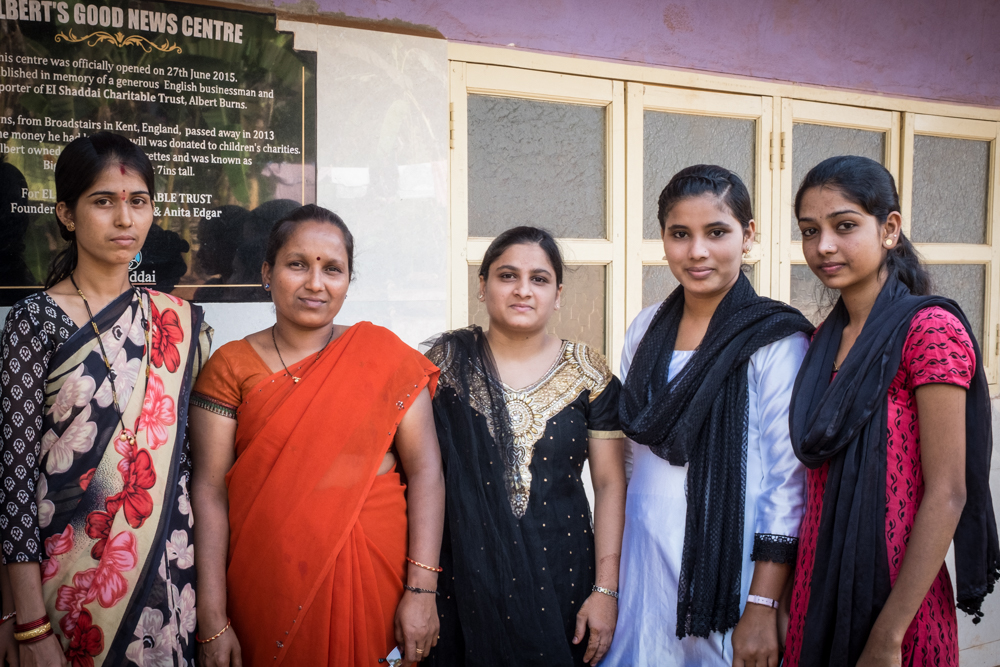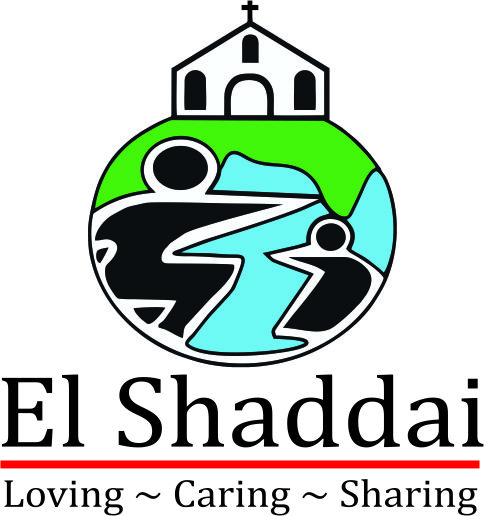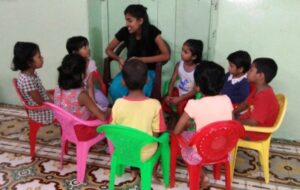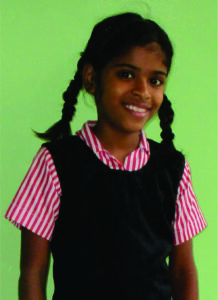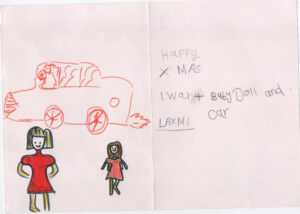The hill in the heart of Margao is home to the Collector’s Bungalow, a military supplies depot and palatial bungalows. Known as Moti Dongor, it offers panoramic views of the financial capital of Goa. A dream for the real estate industry. But a sharp left from this highbrow neighbourhood and the road leads to a side of Goa, not in any tourist guidebook – the irregular housing colony known as the Moti Dongor slum.
It’s 3.30 in the afternoon and Sunita is hunched over a foot peddled sewing machine. Bits of cloth lie around her on the grey cemented floor. An old cathode ray tube television set and a refrigerator form the backdrop to her workspace. The room is small, by any standard – seven feet by eight feet. Against one wall are vessels and cooking paraphernalia. Clothes hang on a string tied across one wall.
From three to six every afternoon, Sunita’s single room home converts into her tailoring studio. Today, she is busy tailoring a churidar for a customer in the Moti Dongor colony.
The settlement is home to migrants of the Muslim and Hindu communities. Some have been living here so long, the term ‘migrant’ cannot apply anymore. And yet the area is classified as a slum – a vote bank for politicians of all hues, who show up at election time.
 At the entrance of the colony stands a two-storied building. A dozen boys and girls play in the tiled, compound in front of the building. Some young girls chat in a huddle. Inside, in a small hall, are a group of women. They are discussing animatedly.
At the entrance of the colony stands a two-storied building. A dozen boys and girls play in the tiled, compound in front of the building. Some young girls chat in a huddle. Inside, in a small hall, are a group of women. They are discussing animatedly.
This is the Albert’s Good News Community centre, run by the El Shaddai Charitable Trust. This is where I first met Sunita and some women from her group.
Sunita passed her tenth grade before leaving formal education. She has been living in Moti Dongor since her marriage. Her husband works as a mason on daily wage.
Life as a woman in India can be tough. Even more so in highly conservative, ghettoed communities like here in Moti Dongor.
“A woman is subject to her in-laws,” says Sunita, giving me a glimpse into life in the community. “After marriage, I had to ask for money from them for every need. That’s the life of a woman.”
But Sunita and women like her, are changing their destinies thanks to help from Albert’s. The centre was started in 2011 inside the Moti Dongor colony. In 2015, it was shifted to the present premises just outside the settlement. The centre, with a large hall and five classrooms, a pantry and a playground, conducts pre-primary schooling for the little children of the area. Older children visit for free coaching classes every afternoon. They attend government-run schools in Margao,
But targeting women leads to more significant change.
“Getting a woman aware of health, financial prudence and the need for education can change the family’s life,” says Anju a social worker at the centre. “Making them self-dependent can lead to even more substantial transformation,” she adds.
The centre started adult literacy programmes and skills-based courses including tailoring, beautician, computing and nursing.
 Sunita enrolled herself at the Centre and learnt sewing. Today, she accepts orders for tailoring women’s clothing at home.
Sunita enrolled herself at the Centre and learnt sewing. Today, she accepts orders for tailoring women’s clothing at home.
“It was stifling,” she says of her environment at home earlier, “now after coming to the centre, I get a lot of freedom and I can learn interesting things.”
Sunita speaks with the confidence that only comes with a feeling of self-reliance. Her son studies in the 9th while her daughter is in the 7th grade.
“It’s important to learn and move forward,” she says, “No point staying back. No matter what skill you learn.”
Like Sunita, Sobha is also a resident of Moti Dongor. Now in her late twenties, she came to the area after her marriage ten years ago.
“All I did was housework,” says Sobha, “but then I heard of this centre.”
Sobha has regularly been coming to the centre where she learnt sewing and like Sunita, started her own little home-based business accepting orders for churidars and blouses.
Stitching a churidar can fetch up to Rs 150; while a blouse is Rs 100. The money they make in a month is sufficient for their needs, they tell me. There are opportunities for the women who can develop skills.
“But women must decide to use the skills taught to them,” says Sobha, “It’s no use if they learn and continue to sit at home.”
Sobha has two children. Although she left school after the fifth grade, she is determined to educate both children. The eldest is five and goes to regular school while the other is two and a half years and goes to the playschool at the Albert Centre.
Such is the power of working directly with the women that Albert’s Good News Centre hopes to tap. Investing in women is investing in entire families.
 While Sunita and Sobha arrived in Moti Dongor after marriage, Netra was born in the settlement. She lives there with her parents and two brothers. Her brothers work in Margao city – one in government service and the other as a cashier at a department store. However, Netra’s parents were not in favour of her going out to work.
While Sunita and Sobha arrived in Moti Dongor after marriage, Netra was born in the settlement. She lives there with her parents and two brothers. Her brothers work in Margao city – one in government service and the other as a cashier at a department store. However, Netra’s parents were not in favour of her going out to work.
Netra dropped out of the education system after her tenth grade.
“I did not wish to study further,” she admits.
Girls in communities like the one in Moti Dongor are not encouraged to study, and many drop out of school. Education for girls is not high on the list of priorities for parents here. Getting a daughter married is more important.
But fortunately for Netra, the Albert’s Centre offered skill-based training at her doorstep, and so her parents agreed to let her attend.
Netra first did a beautician’s course at the centre and worked in a parlour in Margao for on-the-job training. She also learnt the art of henna design. Henna is traditionally used at weddings to create intricate designs on the hands and feet for the bride and other women. Henna artists are sought after, and Netra and her friends have formed a small team to cater to wedding parties.

Moti Dongor is home to families of both the Hindu and Muslim communities. Fatima and Anjum are two cousins. Dressed in traditional Muslim white salwars, the teenage girls are a bubbly duo.
“We did our tenth grade and left school,” says Fatima.
Why? I ask them.
“There was no permission for college,” says Anjum and giggles.
“You see, our parents did not want us to go. And so we couldn’t,” says Fatima, “but my brothers were obstinate, and they are in college.”
Educating a son is considered a priority for parents in the lower income families. Girls usually are allowed school up to the tenth grade. Many drop out even before that. College is a privilege for boys. Like Netra, they were permitted to attend courses at Albert’s only because it was close to home. The bias against education for girls straddles communities.
Fatima and Anjum have been visiting the centre for the past seven years. They’ve learnt henna design, tailoring and computers. Now they are enrolled in the five-month nursing course.
With home nursing, you will need to go out and work, I point out.
“We are learning so much here. How long are we going to sit at home?” asks Anjum smiling, “We will convince our parents.”
Thanks to the learning initiatives at the Centre, Sunita, Sobha and Netra are now earning and are more independent than most women in Moti Dongor. And young girls like Fatima and Anjum are determined to change age-old biases.
These women have learnt so much more than just skills that give them an income.
“What they teach us here is to be independent,” says Sunita, “Stand on your own two feet.”

